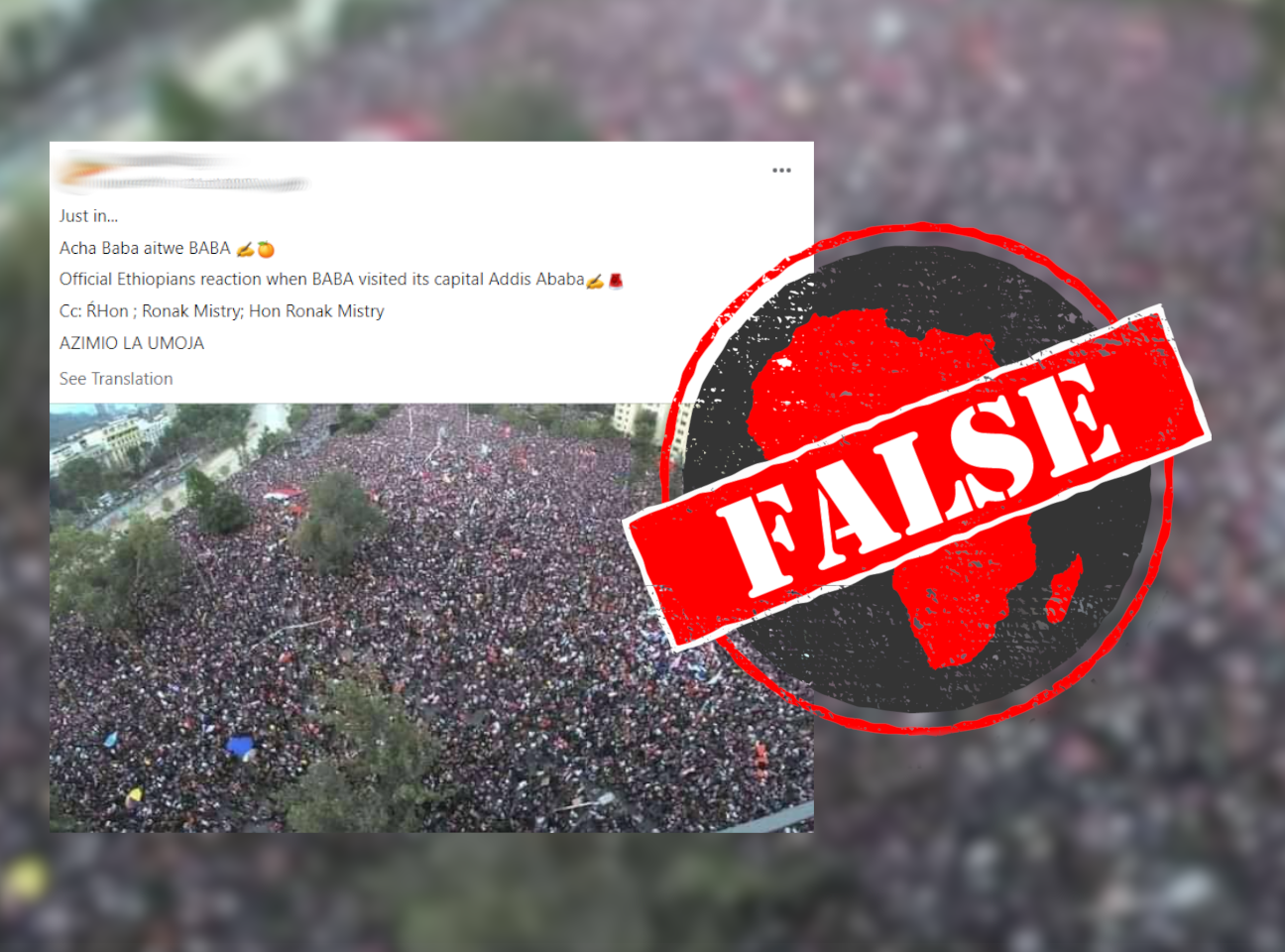Kenya is set to hold its next general election in August 2022. The frontrunners for the presidency are current deputy president William Ruto and former prime minister Raila Odinga. In their campaigns, both have been holding large rallies.
In early November 2021, a photo of a massive crowd was posted on Facebook. Its caption says they were gathered in Addis Ababa, the capital of Kenya’s northern neighbour, Ethiopia, to see Odinga.
“Just in... Acha Baba aitwe BABA,” it reads. “Official Ethiopians reaction when BABA visited its capital Addis Ababa.”
Odinga is often respectfully called “Baba”, Kiswahili for “father”. The Kiswahili part of the caption translates as: “Let father be called father.”
But does the photo really show a huge crowd of Ethiopians welcoming Odinga to Addis?

Protest against higher public transport fares
A reverse image search reveals that the photo actually shows an October 2019 protest march in Santiago, the capital of the South American country of Chile. According to media reports, the march against higher public transport fares attracted more than a million people. It was also covered on social media.
The photo is a screengrab from a video of the protest, which was streamed live. According to press coverage, the unrest began over public transport fares and grew into wider discontent with economic hardship and inequality.
The photo does not show a crowd welcoming Odinga in Ethiopia.
Republish our content for free
For publishers: what to do if your post is rated false
A fact-checker has rated your Facebook or Instagram post as “false”, “altered”, “partly false” or “missing context”. This could have serious consequences. What do you do?
Click on our guide for the steps you should follow.
Publishers guideAfrica Check teams up with Facebook
Africa Check is a partner in Meta's third-party fact-checking programme to help stop the spread of false information on social media.
The content we rate as “false” will be downgraded on Facebook and Instagram. This means fewer people will see it.
You can also help identify false information on Facebook. This guide explains how.


Add new comment